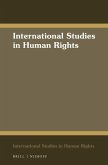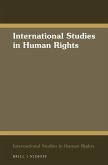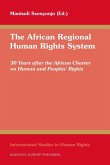Human rights treaties are at the core of the international system for the promotion and protection of human rights. Every UN member state has ratified at least one of these treaties, making them applicable to virtually every child, woman or man in the world - over six billion people. At the same time, human rights violations are rampant. The problem is that the implementation scheme accompanying the core human rights standards was drafted during a period of history when effective international monitoring was neither intended nor achievable. Today there is a gap between universal right and remedy that is inescapable and inexcusable, threatening the integrity of the international human rights legal regime. There are overwhelming numbers of overdue reports, untenable backlogs, minimal individual complaints from vast numbers of potential victims, and widespread refusal of states to provide remedies when violations of individual rights are found. This landmark Report prepared by Professor Bayefsky envisions a wide-ranging number of reforms, most of which can be accomplished without formal amendment. The recommendations generally assume a six treaty body regime, and focus primarily on offering concrete suggestions for improvements in working methods of the treaty bodies and procedures at the Office of the High Commissioner for Human Rights (OHCHR). Professor Bayefsky details numerous proposals for bolstering national level partnerships, and for following-up the output of the treaty monitoring system as a key missing component of the implementation regime. One major reform requiring amendment is ultimately recommended, namely, consolidation of the human rights treaty bodies and thecreation of two permanent committees, one for the consideration of state reports and one for complaints. All individuals, agencies, and organizations involved in the promotion, implementation, review, analysis, and study of human rights protection for all peoples will find








